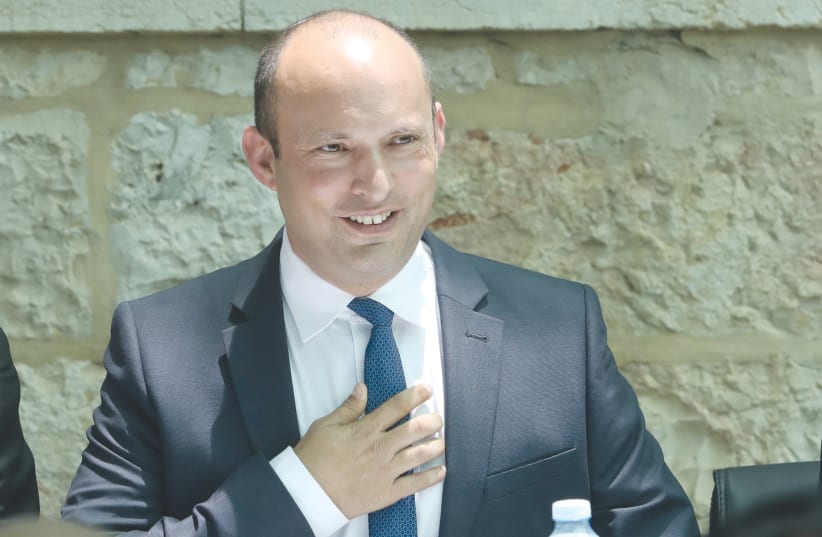It was an off-the-record conversation, but I can tell you that even then, Sa’ar believed he could replace Prime Minister Benjamin Netanyahu. His apparent modesty and straight talk were reminiscent of his Likud mentor, Menachem Begin, whose son, Benny Begin, recently joined his new party. Does Sa’ar have a chance of being Israel’s prime minister? Perhaps, but it might just depend on Naftali Bennett.
I have been fortunate to meet and interview many of Israel’s political leaders, from Netanyahu (Likud) to some of the party heads running in the March 23 election – Sa’ar (New Hope), Bennett (Yamina), Yair Lapid (Yesh Atid), Arye Deri (Shas), Moshe Gafni (United Torah Judaism), Avigdor Liberman (Israel Beiteinu), Ayman Odeh (Joint List), Merav Michaeli (Labor), Benny Gantz (Blue and White), Bezalel Smotrich (Religious Zionism) and Nitzan Horowitz (Meretz).
As Israel gears up for its fourth election in two years in the shadow of the devastating COVID-19 pandemic, allow me to make some candid comments about the candidates for prime minister.
First, they are mostly capable people who have made considerable contributions to the country. Despite his ongoing corruption case, Netanyahu – who has served as premier for five terms and a total of almost 15 years – enjoys a comfortable lead over the rest of the pack. If he wins, as the polls predict, he may face a battle to cobble together a coalition of more than 60 of the 120 members of the 24th Knesset.
Netanyahu’s top challengers from the Right are Sa’ar and Bennett, both of whom were once close to him. Sa’ar was a cabinet secretary, MK and minister under Netanyahu while Bennett served as the premier’s chief of staff and later in several cabinet posts, but both became disillusioned with his leadership.
Sa’ar says he refuses to sit in a government under Netanyahu, while Bennett won’t rule out a rotation agreement for the premiership.
The main challenger from the center-Left is Lapid, who according to a Jerusalem Post-Maariv poll published on February 12 narrowed Netanyahu’s lead to just nine seats (28-19). Lapid, a clean-cut former journalist whom Netanyahu fired as finance minister in 2014, has spearheaded a campaign against corruption.
Another former journalist running in the race is the affable Michaeli, who is – regretfully – the only woman leading a party. Michaeli has the formidable task of resuscitating Labor, which was significantly weakened after her predecessor, Amir Peretz, broke a pre-election pledge (after shaving his mustache) and joined the Netanyahu-Gantz national unity coalition.
The Jerusalem Post/Maariv poll of 550 Israeli adults predicted 47 seats for the pro-Netanyahu bloc (Likud, Shas, UTJ and Religious Zionism) and 57 seats for the anti-Netanyahu bloc (Yesh Atid, New Hope, Israel Beiteinu, Labor and Meretz). The Joint List, with eight seats, wasn’t included in either bloc because it declines to support any candidate for prime minister, although in the last election it took the unusual step of endorsing Gantz, a former IDF chief.
That would ostensibly place Bennett, whose Yamina party polled at a dozen seats, in a position to determine who heads the next government – Netanyahu, Sa’ar, Lapid or himself. For this reason, Bennett, a former hi-tech whiz and the son of American immigrants whose eloquence in English approaches that of Netanyahu’s, is now being called “the new kingmaker.” The upcoming election could very well be his crowning achievement.Steve Linde
